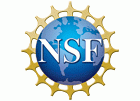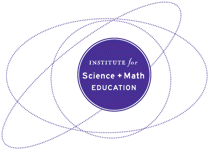How can we confront and dismantle systemic racism through science learning?

- Teachers have power and responsibility to change racist legacies of STEM and schooling by engaging in self-work, learning more about racial justice and science education, and centering racial justice in their curriculum and pedagogy.
- District Staff & PD Providers should work collaboratively with educators to engage in cycles of critical reflection and learning designed to incorporate racial justice topics into science teaching and learning.
- Educational Leaders should support educators in connecting with peers and colleagues to collaborate, identify resources, and become accountable in their racial justice efforts.
What is the Issue?
Science is often seen as objective and neutral; however, science is a subjective human endeavor shaped by issues of power and oppression. Science teaching and learning often leaves untouched a status quo that threatens the physical, emotional, psychological, and intellectual well-being of historically minoritized learners, especially students from Black, Indigenous, and People of Color (BIPOC) communities. Science educators must consider questions of racial injustice and anti-Blackness in the history of science, dominant assumptions about what counts as science, representations of who engages in scientific practices, and how we teach these topics.
Authors:
BY MELISSA BRAATEN, DANELLE FOSTER, JASON FOSTER, RAE JING HAN, DÉANA SCIPIO & ENRIQUE SUÁREZ; EDITED BY: DEB L. MORRISON & PHILIP BELL | OCTOBER 2021
Things to Consider
- Systemic and institutional racism is a pervasive reality in the systems that we live and work in. We are differently implicated in and impacted by these systems based on our racialized identities. We can challenge and disrupt racism in educational institutions, which starts with examining our own prejudices. We can then analyze and act to disrupt elements that perpetuate racism in STEM education, and in society more generally.
- Race is a system of categorization invented by humans in positions of power for reasons of sociopolitical oppression, not biological explanation. Race is a social construct that has no biological basis (e.g., there are no genetic variants found only in some race groups and not in others). However, race and racism have damaging, real consequences.
- Silence is never neutral; neither is science. Science teaching that foregrounds whiteness as the norm is harmful to people of all racial identities and ages. Science instruction should amplify and center the voices of BIPOC communities, their resistance against scientific and societal racism, and their valuable contributions to collective understandings of the natural and designed worlds.
- We must abandon a pervasive mythos of the individual as the sole proprietor of scientific accomplishment. Many Black, Latinx, Indigenous, and Asian and Pacific Islander communities think of knowledge as a community-based endeavor that combines the past and present to bring forth a holistic future. Follow #AmplifyBlackSTEM, #BlackAFinSTEM, #BlackandSTEM, and #NativesInSTEM to learn more.
Attending to Equity
- Systems of racial injustice, white supremacy, and anti-Blackness are always connected with intersecting oppressive systems, including settler-colonialism and anti-Indigeneity, ableism, heteropatriarchy, linguicism, Eurocentrism, and many others.
- An anti-racist STEM pedagogy reframes teachers’ pedagogical ideology to be vigilant about racial self-awareness, recognize and disrupt white supremacy, rethink science history, and see discussions of race in science as beneficial to the growth of learning communities.
- Intentional use of language is central in equity and justice work. Language is also dynamic and often shifts to better reflect our justice commitments. Exploring terms and concepts about race, racism, and racial justice and having explicit conversations about language can help us describe and dismantle oppressive systems and create more just possibilities.
Recommended Actions You Can Take
- Identify thought partners who can support your ongoing critical self-reflection and learning about racial justice and intersecting justice dimensions. Check out this resource to get started with your colleagues.
- Talk about race, racism, anti-Blackness, and other intersectional issues of oppression with everyone you can, in all contexts. Investigate, recognize, and disrupt the legacies of racist oppression and violence that STEM fields created and continue to perpetuate. Dismantle racist structures in your work as a STEM educator. Consider how you can take action on multiple scales—including on individual and interpersonal, institutional and organizational, and ideological levels.
- Science learning activities reflect specific value systems, potential identities, and possible futures. Examine the science curricula you currently use and your reasons for selecting these resources. What assumptions and ideologies are present in these materials and activities? How can science and engineering activities contribute to intersectional racial justice? See examples related to COVID-19 and health inequities (K-2, 3-5, MS, HS), DNA exonerations, and race, racism, and genetics.
Supplemental Materials to go with STEM Teaching Tool 79:
- Primer: How race operates in science and STEM fields
- How to have courageous conversations about race and racism with other teachers
- Conducting an audit of your STEM curriculum, resources, and activities
ALSO SEE STEM TEACHING TOOLS
STEM Teaching Tools content copyright 2014-22 UW Institute for Science + Math Education. All rights reserved.
This site is primarily funded by the National Science Foundation (NSF) through Award #1920249 (previously through Awards #1238253 and #1854059). Opinions expressed are not those of any funding agency.
Work is licensed under a Creative Commons Attribution-ShareAlike 4.0 Unported License. Others may adapt with attribution. Funded by the National Science Foundation (NSF). Opinions expressed are not those of any funding agency.


 Email Feedback
Email Feedback

